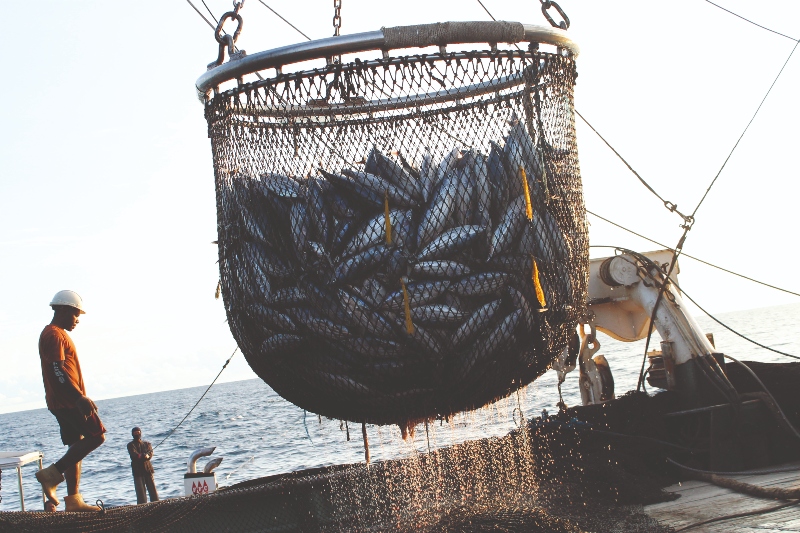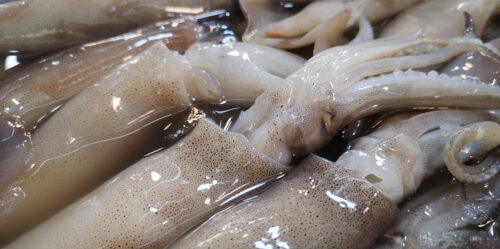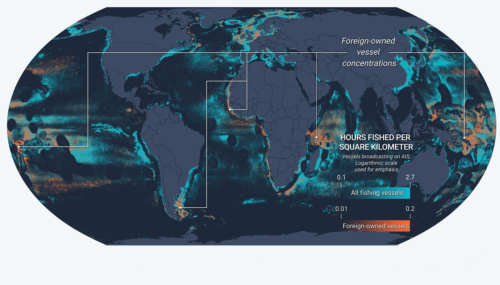Transparency of vessel information will protect fisheries observers and help create a culture of compliance

Credit: Jamie Ling, 2011
Working as a fisheries observer is a challenging job. Days, possibly even weeks away from shore, long hours in a tough environment – there’s no question that the role is physically and mentally demanding.
But the difficulties don’t stop there. Fisheries observers often must work alongside fishing crew and captains who don’t want them there. Sadly, reports of harassment, abuse and even murder are not uncommon in the profession. Investigating these incidents is complex and the details are often shrouded in mystery – implicated vessels have been known to switch off their tracking systems, leaving authorities with little to go on.
Tough as it may be, it is a vital profession for ensuring seafood is caught legally. Fisheries observers are authorized by a regulatory authority to collect scientific information which assists in the monitoring, control and surveillance of commercial fishing operations. The data they collect is important to ensure management measures are respected and successful in achieving their aims. While observers’ work is needed to achieve Sustainable Development Goal (SDG) 14, sustainable use of the ocean, this cannot be at the expense of the achievement of SDG 8, which promotes decent work for all. A fisheries observer, like any person, has the right to decent work.
Global Fishing Watch creates and publicly shares knowledge about human activity at sea to enable both fair and sustainable use of our ocean. We believe increasing fisheries transparency – that is publicly available information on fishing vessels and fisheries – will shed light on what happens on deck and below water, and support fisheries management efforts.
To emphasize the need for environmental and social issues to be addressed together, the Association for Professional Observers published an open letter to marine conservation groups requesting support for protections alongside increased observer coverage. Reports by Human Rights At Sea (HRAS) offer specific recommendations and outline their feasibility. A key thread running through these recommendations is the need for access to information. These include:
- Full disclosure of vessel monitoring system data associated with any voyage where an observer dies or disappears;
- Regular engagement of INTERPOL and relevant government authorities where violations of human rights may have occurred; and
- Transparent and unimpeded investigations into all cases of human rights violations.
Fisheries transparency is one tool that can break the pattern of illegal, unreported and unregulated (IUU) fishing. By publishing fishing vessel identification, authorization and tracking data, a culture of compliance is created; fishers can be rewarded through faster, more efficient port entry and landings, and enforcement costs can be reduced. Unauthorized vessels, and those with a history of noncompliance are easier to identify and can be prioritized for inspection or denied port entry.
Greater transparency in fishing activity can also support the protection of fishers and fisheries observers. If a vessel is suspected to have conducted IUU fishing and is to be inspected accordingly, it follows that an investigation of the working conditions onboard the detained vessel should be prioritized. Vessel operators breaking fishing regulations for financial gain are more likely to also disregard the human rights of their crew. Access to transparent vessel identification and tracking information will support stakeholders in conducting these inspections, and in implementing HRAS’s recommendations.
While one solution of many, fisheries transparency can minimize opportunities for the exploitation of fisheries, fishers and observers. It can also highlight risk of potential areas of concern for further investigation.
Through increasing fisheries transparency, we hope that relevant stakeholders can access the data they need to ensure the safe and decent working conditions that fishers and observers are entitled to, as well as the sustainable use of life below water.
Courtney Farthing manages the global transparency program at Global Fishing Watch.

